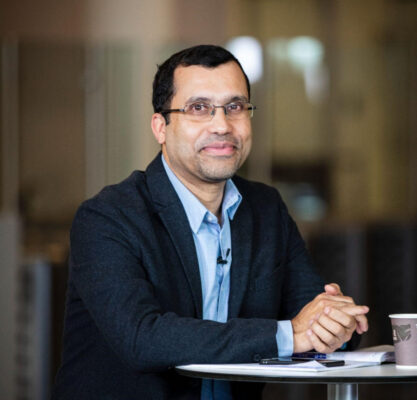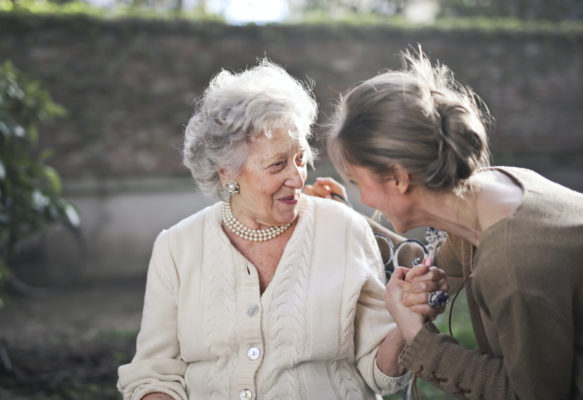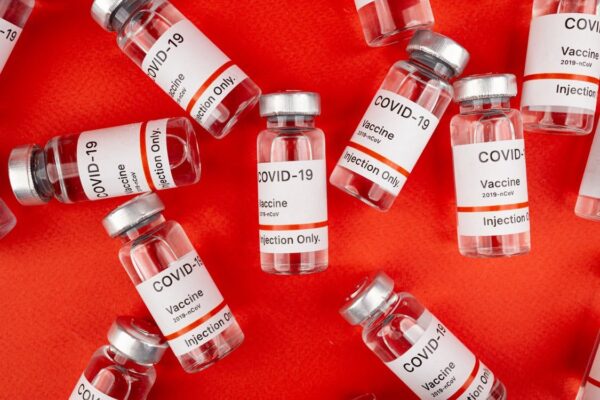Health systems in Europe are catching up on vaccine appointments missed in the early stages of the COVID-19 pandemic, according to an expert from the World Health Organization’s Regional Office for Europe.

Most of the 53 countries in the region have been able to make up for lost time and some are running targeted catch-up campaigns to help maintain high levels of coverage, Dr Siddhartha Datta, Regional Advisor for Vaccine-preventable Diseases and Immunization told Vaccines Today.
Dr Datta said that providing older adults with access to the vaccines can support healthy ageing as immunisation helps to deliver ‘the full benefits of vaccines, leaving no one behind’. This reflects the theme for this year’s immunisation week: Long Life for All.
Read the full interview with Dr Datta.
The theme for this year’s European Immunization Week is #LongLifeForAll: Why was this chosen?
This is a theme chosen to highlight that everyone deserves the chance to lead a long and healthy life. This is also the theme of the World Immunization Week. Vaccines help children get a good start to life and continue to keep people safe from many diseases throughout their lives.
What can European countries do to incorporate immunisation into healthy ageing policy? How can the WHO help?
All 53 Member States of the WHO European Region adopted in September 2021 the European Immunization Agenda 2030. This new strategy sees immunization as a tool to protect health throughout the life course, amongst other critical elements, and calls on countries to develop appropriate service delivery modalities for adult vaccination.
Providing older adults with access to the vaccines available to protect them in their later years is an integral part of realising the full benefits of vaccines and leaving no one behind.
WHO will work closely with the Ministries of Health to develop context-specific immunisation policies that are coherent to the principle of healthy ageing. This will also involve supporting the Ministries of Health and the National Immunization Technical Advisory Groups (NITAGs) to formulate evidence-informed policies for the adult population.

Are you concerned that Europe has taken a big step back in routine immunisation since the COVID-19 pandemic?
For 2020, we know that while a few countries in the WHO European Region experienced nationwide interruptions in the delivery of routine immunization services at the start of the pandemic, most were able to make up for lost time once services resumed and/or with targeted catch-up vaccination and ultimately reached a high level of coverage.
When we look at 2020 data, in general for the Region the decline in coverage was minimal. Coverage for the third dose of diphtheria-tetanus-pertussis vaccine (DTP3), for example, dropped by only 1% in 2020.
However, this modest decrease masks large variations among countries. 11 countries had a drop of more than 5% either with DTP3 or the first dose of measles-containing vaccine. Review of subnational coverage data indicates further inequities within countries: some subnational areas fell further behind compared to their country’s national coverage. Coverage numbers for 2021 from the Member States are not yet available.

How might the experience of introducing COVID-19 vaccines have changed attitudes to routine immunisation?
Through qualitative and quantitative behavioural insights studies conducted with support from WHO and other partners in many countries throughout the pandemic, we know that attitudes toward COVID-19 vaccines and vaccination have changed favourably over time, and the overwhelming majority of people in most countries continue to be in favour of vaccination.
Given the evolving nature of the COVID-19 pandemic, trust of the population and the infodemic observed during the roll-out of the COVID-19 vaccination in countries, it is not possible to predict with certainty the impact that COVID-19 vaccine rollout will have on attitudes toward routine vaccination, at this point of time.
The routine immunization coverage numbers for 2020 do not signal any attitude change. Coverage in 2021 in every community when compared with 2019 or before will pave the way for the ministries of health to decipher the demand and acceptance of the routine vaccines together with that for COVID-19 vaccines in these communities.
WHO will continue to monitor this closely, including through continued qualitative and quantitative behavioural insights studies to highlight any attitude changes, particularly in countries that have experienced a vaccination coverage decline.
What support can be done to help sustain basic healthcare systems, including routine immunisation, in Ukraine?
WHO is working closely with the health authorities in Ukraine to assess needs and provide support. Hundreds of tonnes of medical aid have been delivered so far. We are closely monitoring vaccine and related supply needs of the immunisation programme. As of today, the immediate need for hepatitis B vaccine supply has been met. A needs assessment for other vaccines and supplies is underway.
Besides support for vaccines and related supplies, WHO is providing support in outbreak response planning and implementation, disease surveillance and data reporting, outreach to improve access for specific groups, and communication activities, both for COVID-19 and routine immunisation.
Read: WHO Regional Director on ‘building back better’ in Ukraine




